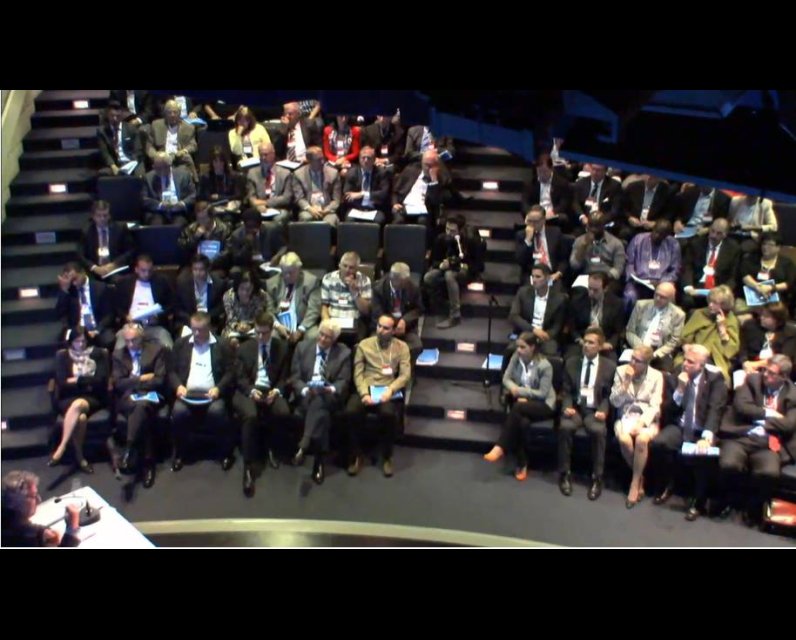Unpublished Opinions
Alma mater: American Military University (MA, Grad Cert), Concordia University (BA).
Membership:
- Member of the Order of the Sword & Shield for Homeland Security and Intelligence
- Member of the West Virginia Iota Chapter of Pi Gamma Mu Social Science Honor Society
- Member of the Golden Key International Honor Societ
Islam and Islamism

An excerpt from unpublished research on Islamism by the author submitted to the School of Security and Global Studies at American Public University.
Defining Islamism
It is hard to find a reasonable degree of distinctness in the definition of Islamism and Islam. Common definitions say Islamism is a faith, and at the same time, it is a faith based political movement.
One of the problems with such definitions is extending Islam as a religion far beyond its spiritual limitations to include an offshoot of the Muslim culture that has developed an extreme political ideology. The other problem is leading people, including some scholars, to believe that Islam is nothing but a political movement such as the case with Ali Sina. He provided a simplistic deductive definition that finds Islam to be a political movement mainly due to what he calls Islam`s one goal, which is in his view, to assimilate or to destroy.
Robert Splenger is one of the scholars reacting to Sina’s claim. In his article "Islam: Religion or political ideology?” Splenger agrees about the mentioned goal of Islam but finds it to be a role that characterizes Islam as a religion, not as a political movement (Splenger 2016). Splenger finds that those who claim that Islam is not a religion make the same mistake made by the philosopher, Immanuel Kant, who claimed that Judaism was not a religion, but a mere body of laws. He added: "Kant mistook the Jews' lack of interest in the afterlife for absence of religious feeling..." (Ibid).
Knowing that the afterlife occupies a very important place in Islam regardless of its sectarian particularities, the claim that it is not a religion fails to neutralize Islam from basic elements in the definition of religion such as the notion of the afterlife. It is noteworthy that both scholars are sharp critics of Islam, and even at their level, the idea that Islam is not a religion remains very weak.
Understanding what Islam is not helps in our query for what Islamism is, as we shall examine subsequently. Middle East scholar Daniel Pipes draws a clear line between Islam, the religion of about one billion people, and Islamism stating:" Islam emphasizes individuals while Islamism emphasizes communities. Islam is a personal credo while Islamism is a political ideology" (Pipes 2000). The Islamist ideology according to Pipes seeks to establish a model based purely on Sharia and a rejection of all aspects of Western civilization - customs, philosophy, political institutions and values (Ibid). Therefore, Islamists can be considered as political obscurantists carrying a regressive and anti-modern agenda.
In his article "A Short History of Islamism", Robin Wright divides Islamists into two groups: Political parties vying for position within systems, and extremists using violence or waging war to change the system from outside (Wright 2015). Based on this classification, non-violent Islamists who work from within the system are not to be considered extremists or obscurantists.
To further improve the image of Islamists, Mumtaz Ahmad, former professor of Political Science at Hampton University, suggests that known Islamists, such as Rachid Ghannoushi of the Tunisian Al-Nahda Movement, envisions his Islamic state as a Westminster-type parliamentary democracy; a state that adopts pluralism, embraces democracy and respects human rights (Ahmad 2002, pp 5-6). In reality, Ghannouchi, like many other Islamists who were refugees in the West, use double standards in their speeches. When they speak English for non-Arabs like Dr. Ahmad, they support democracy, pluralism and human rights. On the other hand, when they speak Arabic for the Arab audience, they reveal their obscurantist nature.
In a video posted on YouTube, after the so-called Arab Spring, Ghannouchi defended the theory that calls for the capital punishment on all Muslims who wish to leave Islam and choose to follow another religion (Ghannouchi 2011). If we look at some of the most secular appearing Islamists such us the Turkish president Receb Tayeb Erdoghan, it is difficult to factually establish that Islamists represent Ahmad's suggestions. According to Human Rights Watch, the ruling Justice and Development Party (AKP) has demonstrated a growing intolerance of political opposition, public protest, and critical media. Government interference with the courts and prosecutors has undermined judicial independence and the rule of law (Human Rights Watch, Turkey).
In lights of what has preceded, we can say that Islamism is a political ideology that differs from the religion of Islam. It is regressive and obscurantism as it seeks to establish an anti-modern model using tactics including political participation and violent confrontation depending on the circumstantial relevance. This definition removes political Islam from the grey area. It allows us to say that if a Muslim politician takes ancient texts out of their historical context, or if such politician advocates any form of anti-modern religious models, he or she becomes part of the Islamist project. The standard established by this definition provides us with a simple way that helps identifying Islamist activism. Hence, with the exception of Muslims who limit their spiritual experience to their private lives, those who take their spiritual experience to the public arena advocating anti-modern models based on literalism are a true representation of the Islamist ideology.
References
- Ahmad, Mumtaz. 2002. Islam and Democracy, The Emerging Consensus. Islam on Line. Accessed March 12, 2016. https://edge.apus.edu/portal/site/317984/page/f72cfc2a-2e5f-4d86-975b-6a27a2e5861c
- Ghannouchi, Rachid. 2011. Ar.Ghannouchi and the Killing of Seculars. Youtube. Accessed March 15,2016. https://www.youtube.com/watch?v=3uf8rWtno1c
- Human Rights Watch. Turkey. Accessed March 15, 2016. https://www.hrw.org/europe/central-asia/turkey
- Pipes, Daniel. 2000. Islam and Islamism - Faith and Ideology. National Interest. Spring 2000. Accessed February 15, 2016. http://www.danielpipes.org/366/islam-and-islamism-faith-and-ideology
- Splenger, Robert. 2004. Islam: Religion or political ideology? Asia Times. August 4, 2004. Accessed February 19, 2016. http://www.atimes.com/atimes/Front_Page/FH10Aa01.html



Comments
Be the first to comment